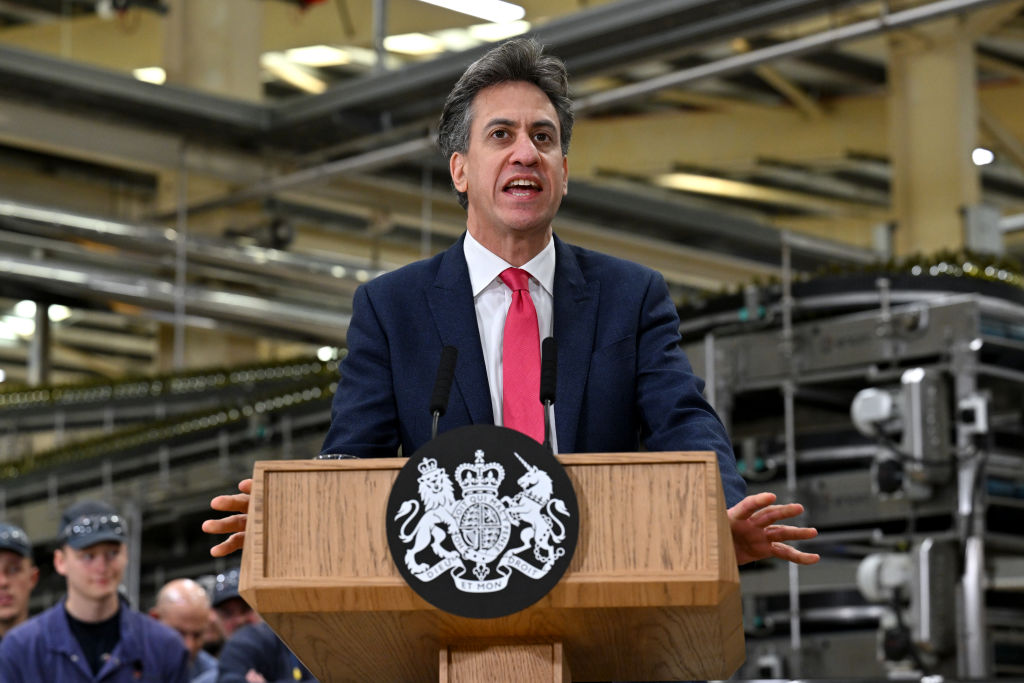You might have expected that most green-inclined scientists and campaigners would have welcomed Friday’s announcement by the Government concerning carbon capture sites. Labour plans to invest almost £22 billion – of which £8 billion is to come from the private sector – to build two projects to “capture” carbon dioxide and bury it beneath the seabed, one based on Teesside, the other in Liverpool Bay.
If so, you would be wrong, for policy on carbon capture and storage (CCS) has become a fiercely contested battleground, and the outcome of this struggle will have big implications not just for Britain’s energy future, but the world’s. Also at stake are sums of money potentially much larger than £22 billion, for this is a battle that involves cash as well as ideology.
According to Doug Parr, policy director of Greenpeace UK, spending the promised sum to take 8.5 million tonnes of CO2 out of the atmosphere per year – just 2.2% of the UK’s total emissions in 2023 – is a poor policy choice, because carbon capture and storage (CCS) will “extend the life of planet-heating oil and gas production”. In his view, “there is a risk of locking ourselves into second-rate solutions.”
Lorenzo Sani, from the climate think tank Carbon Tracker, was also critical, saying the plan was “anchored in outdated and overly optimistic assumptions”, which risked “squandering taxpayer money” on projects that were “high risk”.
It is safe to assume that the 23 authors of a letter to Energy Secretary Ed Miliband last month will have been equally unhappy. Led by academics from universities such as Manchester and Imperial College, they urged him not to make a decision until the projects had been “properly evaluated”.
Like Parr, their chief concern was that funding CCS would “lock the UK into fossil fuel energy generation well past 2050”. This, they went on, would end up by “displacing genuinely zero or low carbon electricity generation”. Instead, the Government should “prioritise funding […] to enable a more rapid transition to renewables”.
In time, their letter concluded, the goal should be an energy system almost entirely reliant on wind and solar electricity. This has an obvious drawback: the fact that sometimes for days or even weeks, the wind does not blow nor the sun shine anything like enough to meet our energy needs. But according to the letter’s authors, “there is increasing evidence that energy security can be achieved from a grid that is almost 100% supplied by renewable energy with a range of storage technologies alongside demand reduction measures such as insulation and low energy heating.”
Professor Myles Allen — Oxford University’s head of atmospheric, oceanic and planetary physics, one of the world’s more eminent climate scientists and a long-time advocate of CCS — vehemently disagrees. One day, technologies such as nuclear fusion may mean oil and gas will be consigned to the past. But not yet: “People who pretend that we are going to be able to stop using fossil fuels altogether any time soon are in some kind of denial,” he told me. “And even if the UK were to do it, the rest of the world won’t.” Britain accounts for just 1% of global emissions.
His argument is supported by a recent Guardian interview with Fintan Slye, the head of the National Electricity System Operator, the body created by Miliband to deliver his goal of a Net Zero grid by 2030. To keep the lights on, he said, the country would have to retain “a significant amount” of gas-fuelled power plants, to be switched on when needed.
The opponents of CCS point to issues such as the leakage of methane (a potent greenhouse gas) caused by oil and gas extraction, to which Allen responds that when the industry is properly regulated, as in Norway and the UAE, this does not happen: “it’s fixable”. Moreover, a large part of the cost should be borne by fossil fuel companies.
Running through the statements by the critics of CCS is an unmistakeable ideological thread: a belief that fossil fuels, the enablers of advanced civilisation on which every modern comfort depends, are inherently bad, to be reviled and done away with, even if CO2 can be buried. Allen has no time for it: “It’s really much more sensible not to take an ideological approach. We are going to have to stop fossil fuels causing global warming long before the world stops using fossil fuels – and that means CCS.”











Join the discussion
Join like minded readers that support our journalism by becoming a paid subscriber
To join the discussion in the comments, become a paid subscriber.
Join like minded readers that support our journalism, read unlimited articles and enjoy other subscriber-only benefits.
Subscribe